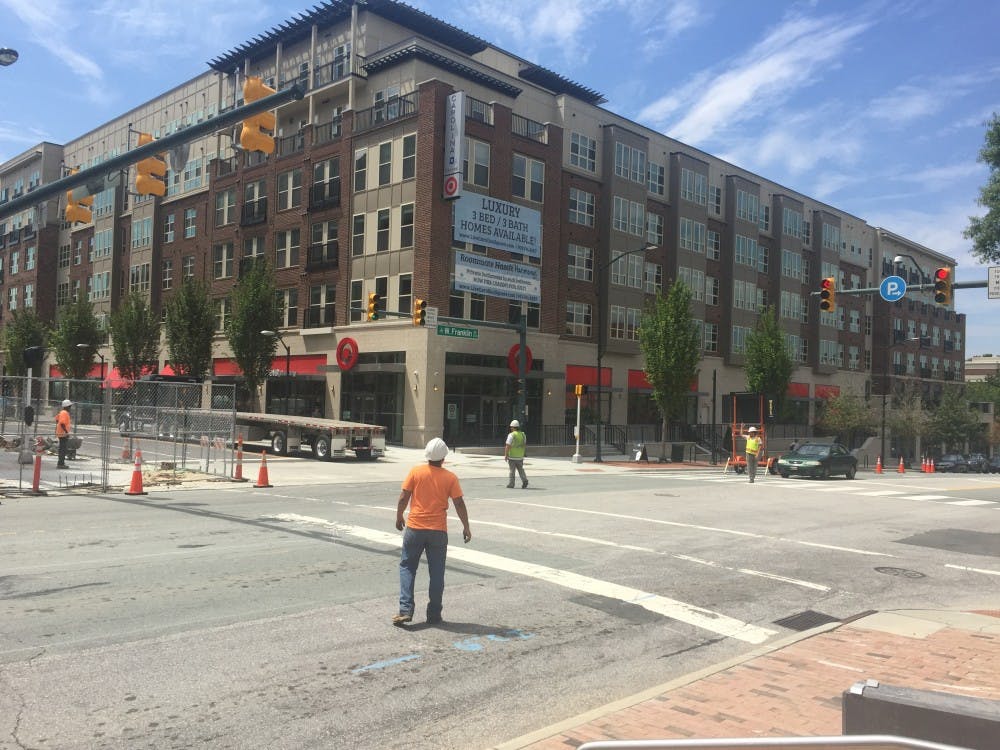Walking down West Franklin Street on a Wednesday afternoon, it can feel like a food desert. Before this summer, there were no places to buy many essential items every college student needs throughout their academic career.
Then, Target opened Tuesday on West Franklin Street in Chapel Hill.
There is a reason for the tall grey fences, hard hat construction workers and unfinished buildings next to Target. It is part of the larger progressive development, Carolina Square.
Target is the first commercial opening in the large development. Carolina Square will have residential spaces, retail shops, restaurants and office space. The office space is expected to open around mid-August, the residential spaces by the end of August and the retail shops in the next 6-8 months.
“The reality is this type of development doesn’t work everywhere because of the population density,” said Jeff Furman, the Vice President of Development and Director of Raleigh operations for Northwood Ravin. “So we were so excited when we learned of this opportunity in downtown Chapel Hill. To be on the edge of such a vibrant university, it allows us to bring together office workers, retailers and residents.”
Target's current location was previously known as University Square, which was privately owned by UNC real estate holders. Furman said the area used to be “dilapidated”.
“(Northwood Ravin) said this could be something better,” Furman said. “The University recognized by revitalizing this part of Franklin Street, but ultimately complementing the downtown area makes the University more attractive and a better place for its students."
Carolina Square is being completely developed by private companies Northwood Ravin and Cousins Properties. According to Dwight Bassett, Chapel Hill's economic development officer, Carolina Square is costing the town nothing and will bring in taxes collected on the property.
“The previous building was set back,” Bassett said. “It did not feel like it was a part of the urban environment. This feels like it is more part of the urban environment and creates a better Chapel Hill experience for the students, faculty, and staff.”




